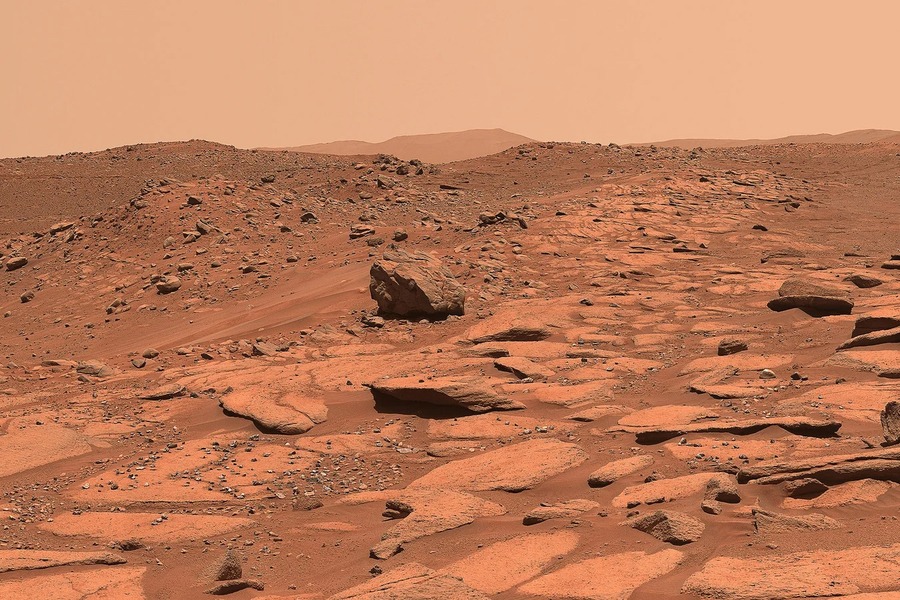Long ago, Mars had a thick atmosphere and was covered with rivers, lakes and seas of liquid water. In theory, this suggested the possibility of life. However, over the past 3.5 billion years, the planet’s surface has become a desert, leaving only traces of former water activity. This makes scientists look for an explanation of what happened to the Red Planet’s atmosphere.

According to a study published in the journal Science Advances, much of Mars’ atmosphere may be trapped in the sedimentary rocks lining the Red Planet’s surface. Scientists suggest that about 80% of the ancient carbon dioxide may have settled in rocks, forming carbon-based organic compounds. This carbon could theoretically be mined and used as fuel for future trips to Mars.
Study author Oliver Jagoutz of the Massachusetts Institute of Technology argues that the process of converting CO2 to methane observed on Earth could have occurred on Mars as well. Scientists hypothesize that this carbon could be mined and turned into rocket fuel, facilitating future travel to and from a distant planet.

The study centers on smectite, a clay mineral that can absorb large amounts of carbon. On Earth, this process is associated with tectonic activity that has contributed to the cooling of the planet. Since Mars has large deposits of smectite clays, scientists hypothesize that much of the planet’s atmosphere may have also been absorbed by this mineral.
According to Joshua Murray, co-author of the study, about 3.5 billion years ago, Mars was saturated with CO2, which permeated the water and rocks. Smectite clays have the ability to store carbon dioxide, and scientists used their knowledge of Earth to calculate how much of the gas these clays could have absorbed on Mars.
Therefore, the atmosphere that once existed on Mars may be hidden in ordinary clays on the planet’s surface, making them a potential source for future exploration.
Earlier we reported on how Elon Musk announced the date for the first manned mission to Mars.
According to MIT


